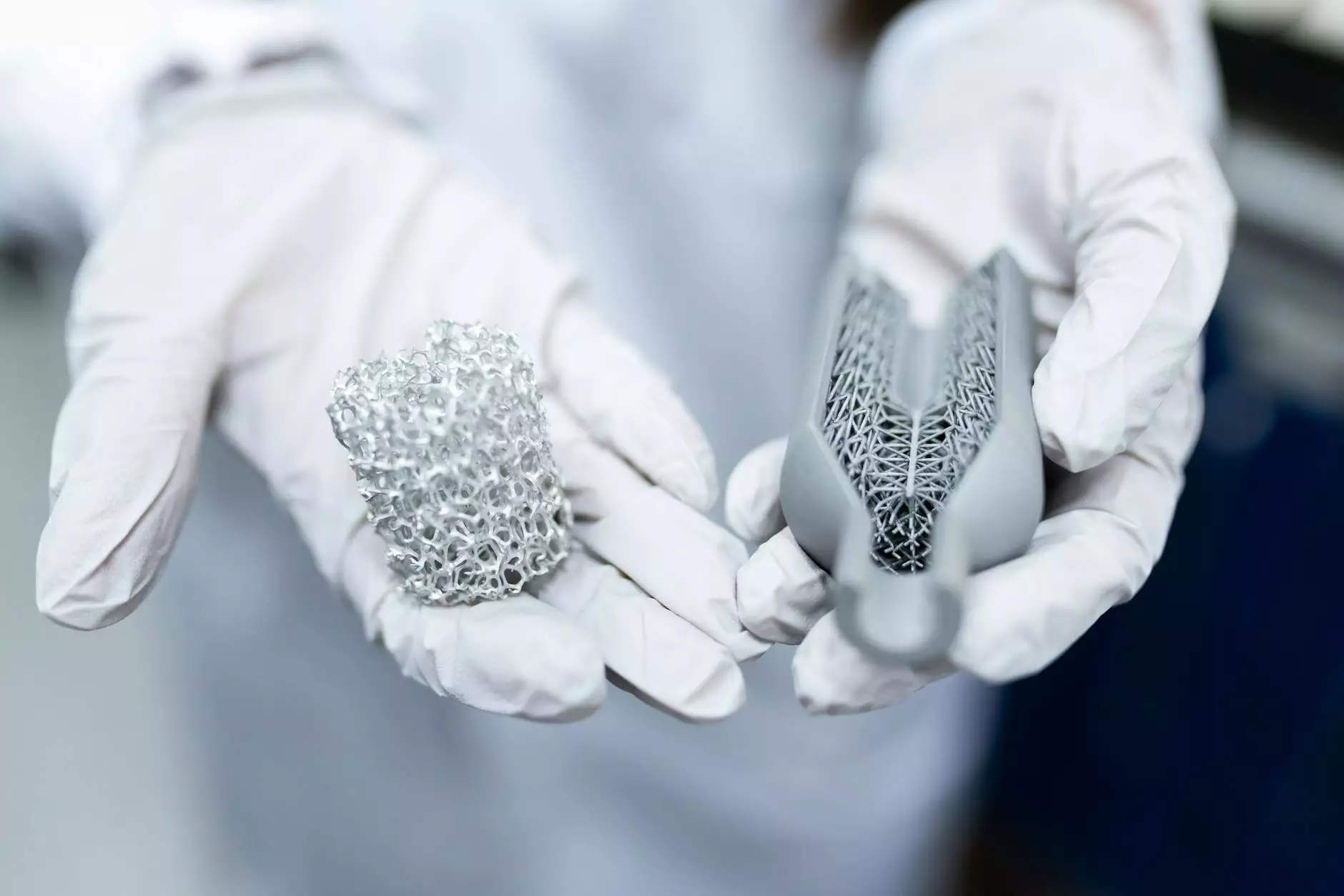Comprehensive Guide to Dental Inlays: Transforming Your Smile with Expert Dental Hygienists

In the evolving world of modern dentistry, patients are increasingly seeking treatments that blend functionality with aesthetics. At the heart of these advancements are sophisticated restorative options like dental inlays, which offer durable, minimally invasive solutions for damaged or decayed teeth. Supported by highly trained dental hygienists, these restorations provide a pathway to both improved oral health and an enhanced smile.
Understanding Dental Inlays: What Are They and Why Are They Important?
Dental inlays are custom-made restorations fitted within the cusps of a tooth, designed precisely to restore its original shape and function. They serve as a conservative alternative to full crowns, especially when the damage is confined within the interior cusps of the tooth. Crafted from materials like porcelain, composite resin, or gold, dental inlays are selected based on durability, aesthetics, and patient preferences.
These restorations are crucial in modern dentistry because they provide a seamless, natural look while offering exceptional strength and longevity. Their importance extends to maintaining the integrity of the remaining healthy tooth structure and preventing further decay or fracture.
Benefits of Choosing Dental Inlays: A Superior Restorative Solution
- Enhanced Durability and Strength:Dental inlays are made from high-quality materials that withstand biting forces, making them ideal for restoring molars and premolars subjected to heavy chewing.
- Minimally Invasive Procedure: Compared to crowns, dental inlays require less removal of healthy tooth structure, preserving your natural teeth.
- Superior Aesthetics: Porcelain and composite inlays match natural tooth color, providing a discreet and attractive restoration.
- Prevents Future Dental Issues: Restoring the tooth effectively prevents further decay, fractures, or wear, extending the lifespan of your natural teeth.
- Comfort and Functionality: Once placed, they restore normal biting and chewing functions, ensuring comfort during daily activities.
- Long-term Cost Savings: Durability and protection against more extensive decay mean fewer future treatments and repairs.
The Process of Getting Dental Inlays: What to Expect
Step 1: Comprehensive Examination and Diagnosis
The journey begins with a detailed dental examination by a qualified dental hygienist or dentist, including X-rays to assess the extent of decay or damage. Accurate diagnosis ensures that dental inlays are the most suitable treatment option.
Step 2: Tooth Preparation
During this minimally invasive step, the dentist gently removes decayed or damaged tissue, preserving as much healthy tooth structure as possible. The prepared tooth is then cleaned thoroughly to prepare for the fitting of the inlay.
Step 3: Impression and Fabrication
A detailed impression of the prepared tooth is taken, which is then sent to a specialized dental laboratory. Using this model, the lab fabricates a custom dental inlay tailored precisely to your tooth's contour and color.
Step 4: Temporary Restoration
While awaiting the permanent inlay, a temporary filling is placed to protect the tooth.
Step 5: Permanent Placement and Bonding
Once the custom inlay arrives from the laboratory, it is securely bonded to the tooth using a high-strength dental adhesive, ensuring a natural fit and aesthetic appeal. The dentist makes final adjustments to ensure perfect bite and comfort.
Materials Used for Dental Inlays: Choosing the Right Option
Advancements in dental materials enable a range of options tailored to individual needs:
- Porcelain: Known for its excellent aesthetic qualities, porcelain mimics natural enamel and resists staining, making it suitable for visible teeth.
- Composite Resin: A more affordable and quicker choice, composite resin provides good aesthetics but may require replacement sooner than porcelain or gold.
- Gold: Renowned for its durability and strength, gold inlays are less common but excellent for molars subjected to high chewing forces.
The Critical Role of Dental Hygienists in Restorative Care
Qualified dental hygienists are an essential part of the restorative process, providing preventive care and educating patients on maintaining their dental inlays. Their expertise ensures your smile not only receives effective restorations but also remains healthy through regular cleaning, fluoride treatments, and personalized oral hygiene advice.
At Kensington Dental Studio, our dental hygienists utilize the latest techniques and technologies to monitor the health of your restorations and surrounding tissues, ensuring longevity and optimal function. Their role is vital in early detection of issues, such as minor decay or gum disease, which can compromise inlays and overall oral health.
Post-Treatment Care and Maintenance for Dental Inlays
Proper maintenance ensures that your dental inlays last for many years. Follow these essential tips:
- Maintain Excellent Oral Hygiene: Brush twice daily with a fluoride toothpaste, and floss regularly to remove plaque around the restoration.
- Avoid Habitual Chewing of Hard Objects: Refrain from biting on ice, hard candies, or pens to prevent fracture or dislodgement.
- Regular Dental Checks: Schedule routine visits for professional cleaning and assessment, allowing early detection of potential problems.
- Limit Sticky and Sugary Foods: These can erode bonding agents and promote decay if not cleaned thoroughly.
The Future of Restorative Dentistry: Innovations Enhancing Dental Inlays
Advances such as CAD/CAM technology facilitate same-day dental inlays fabrication, dramatically reducing treatment times. Additionally, novel materials like zirconia provide even stronger, more aesthetic restorations. Researchers are also exploring bioactive materials that promote natural remineralization of the tooth, further improving restoration longevity and oral health outcomes.
In the broader perspective, these innovations are transforming restorative dentistry, making procedures more efficient, less invasive, and more aesthetically pleasing than ever before.
Why Choose Kensington Dental Studio for Your Dental Inlays and Restorative Care
Kensington Dental Studio prides itself on its commitment to excellence, combining cutting-edge technology with compassionate patient care. Our team of expert dental hygienists and experienced dentists work collaboratively to ensure the best outcomes for patients needing dental inlays. We prioritize patient comfort, transparency, and personalized treatment plans tailored to your unique needs.
From comprehensive consultations to post-treatment support, our practice embodies the highest standards of restorative dentistry. Trust us to help you restore, maintain, and enhance your natural smile—because your oral health is our top priority.
Conclusion: Achieving Longevity and Confidence with Dental Inlays
Investing in dental inlays offers a range of benefits—from restoring the strength and function of your teeth to revitalizing your smile's appearance. With the expertise of skilled dental hygienists and state-of-the-art technology at Kensington Dental Studio, you can trust that your restoration will be effective, durable, and aesthetically pleasing.
Remember, maintaining your dental inlays through diligent oral hygiene and regular professional care is essential for ensuring they last for many years to come. Embrace the future of restorative dentistry today and enjoy the confidence that comes with a healthy, radiant smile.









